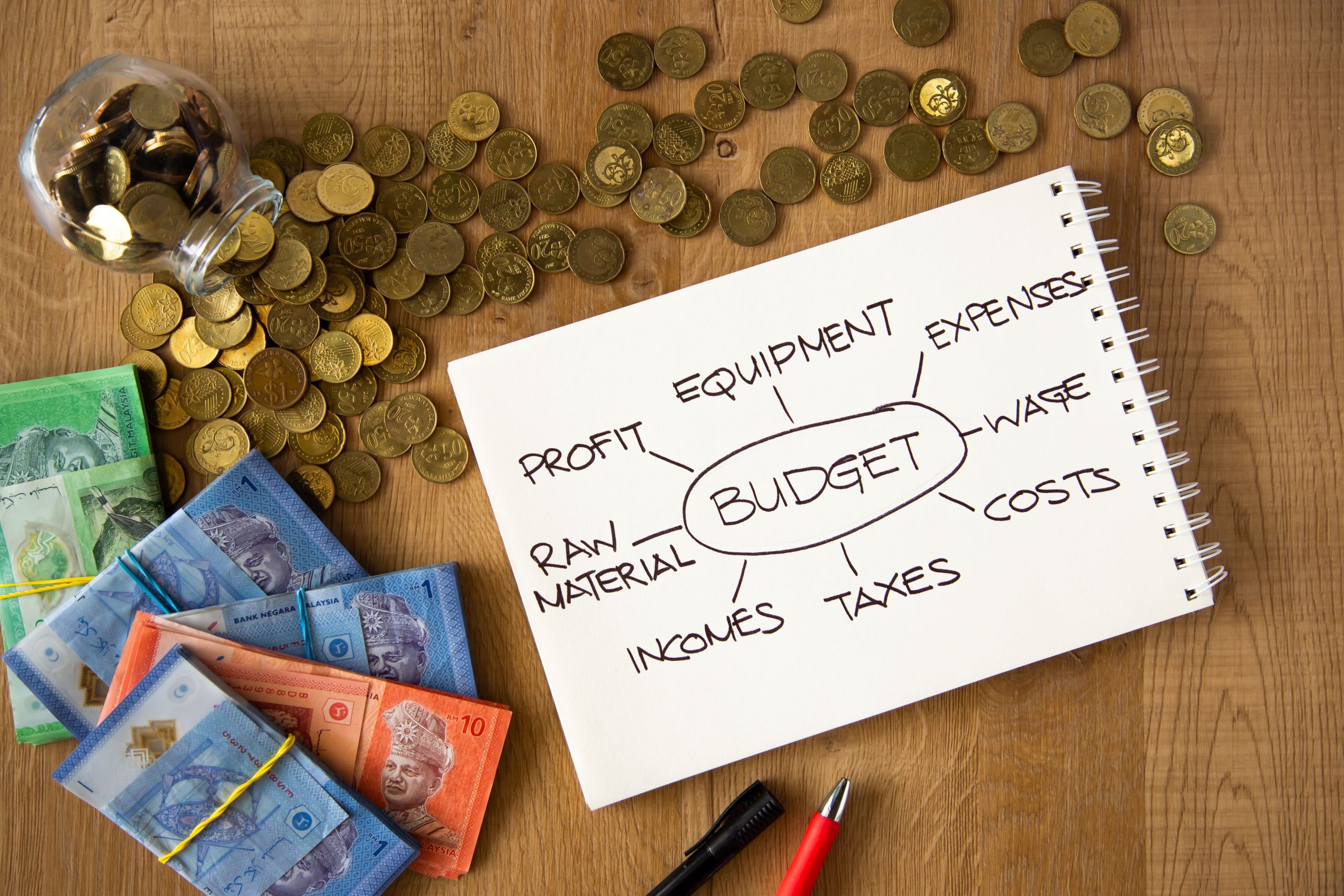
Mastering The Art Of Budgeting: How To Save And Spend Wisely
Budgeting is an important tool for individuals seeking to enhance their financial situation. It entails actively monitoring and managing one’s spending habits to ensure effective income management. By creating a budget, individuals gain a deeper understanding of their financial obligations and are more likely to make informed decisions about where their money goes.
Using this method regularly can help you handle your money, set savings goals, and stop spending too much. When people make a budget, they can keep track of their spending, look for ways to save money, and set aside money for things like saving for a down payment, paying off debt, or building an emergency fund.
By planning, you can also change your cash goals if your circumstances change. If people learn how to make a budget, they can feel good about their financial situation. So, they can be sure that their hard-earned cash is used in the best way possible to reach their objectives.
What is Budgeting?
Budgeting is the skill of handling your money in a smart and responsible way. You need to make a financial plan that lists your income and costs so that you can decide how to spend your money wisely. With a budget, you can do more than just save money. You can also get a handle on your money and work toward your short- and long-term financial goals. A budget keeps track of your spending and ranks it by how important it is to you. This helps you save for the future, pay off debt, and understand where your money is going. Making a good budget can protect your money, give you peace of mind, and help you handle unexpected costs, all of which will improve your quality of life over time.

Benefits of Budgeting
A budget is a useful tool for handling your money that will help you in many ways. People can better handle their money, reach their financial goals, and feel less stressed about money issues by making a detailed budget.
One big benefit of making a budget is that it helps you take charge of your money. It helps you keep track of your income and spending, so you can make smart choices about how you spend your money. You can focus your financial goals and use your resources wisely if you have a budget.
Making a budget also helps you see trends in your spending. By looking at your spending, you can find places where you might be spending too much or throwing money away. Being aware of this lets you make changes and spend less on things you don’t need, which saves you money in the long run.
Budgeting also helps keep things stable over the long run. It helps you prepare for unplanned costs, save money for emergencies, and pay off high-interest debt. You lay a strong financial basis for the future by putting money into savings and paying off debt.
Lastly, making a budget eases the stress of money matters. The knowledge that you have a plan in place to pay your bills, save for the future, and handle unplanned events gives you peace of mind. You can live with more confidence and make smarter financial choices if you are in charge of your money and know where it is going.
Creating a Spending Plan
Making a spending plan is an important first step in learning how to make a budget. The steps include listing and sorting costs, setting priorities for financial goals, and spending funds appropriately.
To start, get all of your financial documents together, like bank records and bills, so you can see what your costs are. Divide them into two groups: set costs (like rent or mortgage) and changeable costs (like food and entertainment). This step helps you figure out where your money is going and where you might be able to make changes.
Set your cash goals in order of importance. Figure out what’s most important to you, whether it’s saving for a trip or a down payment on a house, building an emergency fund, or paying off debt. You can make sure your spending fits with your values if you have clear goals.
Once you know what your financial goals are and how much money you need to spend, it’s time to divide your money up in the right way. Paying your set costs first is a good idea because they can’t be changed. Then, put some of your income toward your unpredictable costs. Remember to find a good mix between having fun with your money and saving for the future.
Review and make changes to your spending plan on a regular basis to make sure it fits with your financial goals. You can make a budget that not only meets your costs but also helps you reach your long-term financial goals if you are focused and planned.
How to Budget like a Pro
To become good at planning, you need to know some basic rules and smart ways to save and spend money. The initial step is to set clear financial goals. Whether it’s building an emergency fund, paying off debt, or saving for a specific objective, having goals enables you to prioritize your spending and align it with your priorities.
Tracking expenses is another essential step. By categorizing and monitoring your expenses, you gain a better understanding of where your money is going and can identify areas where adjustments can be made. Budgeting techniques such as the 50/30/20 rule, zero-based budgeting, and the envelope method can be utilized to allocate funds effectively. The 50/30/20 rule suggests allocating 50% of your income to essentials, 30% to discretionary spending, and 20% to savings. Zero-based budgeting ensures that every dollar is allocated to a specific purpose, leaving no room for unnecessary expenses. The envelope method involves using separate envelopes for different expense categories to visually manage your spending.
Automating savings and bill payments is a great way to stay on track with your financial goals. By setting up automatic transfers to savings accounts and automating bill payments, you ensure consistent progress and avoid late fees. Monitoring your progress regularly allows you to stay motivated and make informed decisions.
Seeking discounts, deals, and avoiding impulse buying are crucial to making the most of your budget. Prioritizing debt repayment is also key to financial success, as high-interest debt can hinder progress towards your goals. By mastering the art of budgeting, you can achieve financial stability, peace of mind, and ultimately, reach your long-term financial goals.

Conclusion
Achieving budget goals is a critical step towards attaining peace of mind and achieving financial success. By establishing clear financial goals, creating a budget, and diligently tracking spending, individuals can take control of their finances and work towards paying off debt, building an emergency fund, and saving for the future.
The discipline and awareness gained through budgeting allow individuals to make informed decisions about their spending and prioritize their financial well-being. As they stick to the budget, they not only gain a sense of stability and security but also develop a positive financial mindset. With each debt repayment made and every dollar saved, individuals move closer to their long-term goals, resulting in a greater level of financial freedom and a higher quality of life.


